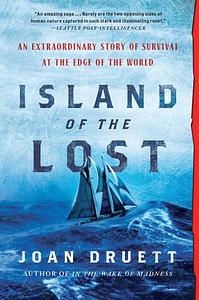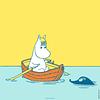You need to sign in or sign up before continuing.
Take a photo of a barcode or cover
In 1864, two sailing vessels both wreck on tiny Auckland Island, in the sub-Antarctic, 300 miles south of New Zealand. The Grafton, captained by Thomas Musgrave, is dashed ashore on January 3, in a bay on the southern side of the island while scouting for seal hunting grounds. All 5 crew members survived. Four months later, the Invercauld, captained by George Dalgarno, is wrecked into the cliffs on the northern side of the island en route from Australia to Peru. Of 25 crew, 19 made it to shore alive. Neither party is aware of the other, or ever makes contact.
Musgrave put his men to work to build a shelter from the Grafton wreckage. He assigned them each daily responsibilities, and they spend their time in industrious pursuits--hunting seals for meat and clothing, gathering wood for fire, building a sturdy shelter, finding edible plants, writing in journals, solving daily challenges, and teaching each other from the books that survived. Each had responsibilities, kept to a schedule, and cared for one another. In an extraordinary feat, after a year awaiting rescue, they spent the next 6 months constructing a fragile but seaworthy dinghy and sailed to rescue to a southern island of New Zealand 300 miles to the north.
There is no such organization or optimism among the Invercauld survivors, most of whom die in the ensuing days, weeks, and months. Disunited and despairing, they scatter and each pursue their own objectives, and ultimately most of them paid with their lives.
This is a deftly woven story of survival and demise, taken from the original journals, letters, and newspaper accounts of those involved. Ultimately, it's a tale of the difference that resources (where they landed on the island, the food available to them, the wreckage that was salvageable) make, but also that resourcefulness (how they spent their time, what kept them hoping, how they worked together) makes in who lived and who died.
I found this true story to be expertly researched and crafted by author Joan Druett. I was notably fascinated by Musgrave and his men and how they managed to survive for so long, and then have the courage to rescue themselves, in a sense, through sheer force of will and ingenuity.
There are lessons here, but they are subtle, and left to the reader to filter from these stories. A tremendous tale of survival, "Island of the Lost" is well worth the read and goes down as one of the best I have read in this, one of my favorite genres (exploration, discovery, survival). This book was a gift from my wife for Christmas 2021, and she nailed it.
Musgrave put his men to work to build a shelter from the Grafton wreckage. He assigned them each daily responsibilities, and they spend their time in industrious pursuits--hunting seals for meat and clothing, gathering wood for fire, building a sturdy shelter, finding edible plants, writing in journals, solving daily challenges, and teaching each other from the books that survived. Each had responsibilities, kept to a schedule, and cared for one another. In an extraordinary feat, after a year awaiting rescue, they spent the next 6 months constructing a fragile but seaworthy dinghy and sailed to rescue to a southern island of New Zealand 300 miles to the north.
There is no such organization or optimism among the Invercauld survivors, most of whom die in the ensuing days, weeks, and months. Disunited and despairing, they scatter and each pursue their own objectives, and ultimately most of them paid with their lives.
This is a deftly woven story of survival and demise, taken from the original journals, letters, and newspaper accounts of those involved. Ultimately, it's a tale of the difference that resources (where they landed on the island, the food available to them, the wreckage that was salvageable) make, but also that resourcefulness (how they spent their time, what kept them hoping, how they worked together) makes in who lived and who died.
I found this true story to be expertly researched and crafted by author Joan Druett. I was notably fascinated by Musgrave and his men and how they managed to survive for so long, and then have the courage to rescue themselves, in a sense, through sheer force of will and ingenuity.
There are lessons here, but they are subtle, and left to the reader to filter from these stories. A tremendous tale of survival, "Island of the Lost" is well worth the read and goes down as one of the best I have read in this, one of my favorite genres (exploration, discovery, survival). This book was a gift from my wife for Christmas 2021, and she nailed it.
A superb account of 2 shipwrecks on the same island.
A truely tragic tale, that can teach us a lot about what is important in society. Absolutely fascinating.
One caveat to that is: There was more then human nature involved with the survival. Though it says that both crashed at the same time, one did at the onset of Spring, with better weather conditions and on a location with ample food (the seals/sea lions), and they had the supplies of the ship available, while the other wreck stranded roughly half a year later in the dead of winter, on a location seals did not frequent and with a ship and supplies that were immediately destroyed and out of reach.
Needless to say, these might also have had a drastic impact on survivability, which the book does not completely account for.
A truely tragic tale, that can teach us a lot about what is important in society. Absolutely fascinating.
One caveat to that is: There was more then human nature involved with the survival. Though it says that both crashed at the same time, one did at the onset of Spring, with better weather conditions and on a location with ample food (the seals/sea lions), and they had the supplies of the ship available, while the other wreck stranded roughly half a year later in the dead of winter, on a location seals did not frequent and with a ship and supplies that were immediately destroyed and out of reach.
Needless to say, these might also have had a drastic impact on survivability, which the book does not completely account for.
adventurous
dark
informative
tense
slow-paced
An absolute page-turner. Two crews shipwreck on the same desolate island four months and 20 miles apart. The stories of their survival (or lack thereof) are compelling.
Druett first introduces the five-member crew of the Grafton. Through unity of purpose, specialized know-how, and hard work they are able to eke out a bearable existance. It’s amazing to witness the extent to which they are able to overcome their surroundings. They build a sturdy shelter complete with mortared fireplace, they perfect a method of hunting seals and sea lions- curing the hides and using the oil for lighting, they process shells to make soap, they even build a forge. At every turn they overcome obstacles large and small to further their goals of survival and rescue.
Not so for the survivors of the Invercauld. Stranded with the entirety of their ship sunk to the bottom of the sea, they are left with no resources and little first-hand knowledge. Spurred by infighting and lack of leadership, the crew disintigrates.
Arranged chronologically, the book reads like a thriller- setting you up with an example of the ingenuity and adaptation of the Grafton crew before introducing the ineptitude of the Invercauld survivors, then cutting back and forth between the two. The result is gripping.
Druett first introduces the five-member crew of the Grafton. Through unity of purpose, specialized know-how, and hard work they are able to eke out a bearable existance. It’s amazing to witness the extent to which they are able to overcome their surroundings. They build a sturdy shelter complete with mortared fireplace, they perfect a method of hunting seals and sea lions- curing the hides and using the oil for lighting, they process shells to make soap, they even build a forge. At every turn they overcome obstacles large and small to further their goals of survival and rescue.
Not so for the survivors of the Invercauld. Stranded with the entirety of their ship sunk to the bottom of the sea, they are left with no resources and little first-hand knowledge. Spurred by infighting and lack of leadership, the crew disintigrates.
Arranged chronologically, the book reads like a thriller- setting you up with an example of the ingenuity and adaptation of the Grafton crew before introducing the ineptitude of the Invercauld survivors, then cutting back and forth between the two. The result is gripping.
dark
hopeful
informative
inspiring
sad
fast-paced
excellent. very well written and researched. The contrast between the two groups of survivors is fascinating The narrator for the audio version is also very good
Something completely different from my usual reading, this adventure engaged me from start to finish. Ms. Druett wove an exciting tale by using the voices of the ship’s captain and mate who both had written diaries. The ship set out from Australia in 1863, the destination being the Auckland Islands south of New Zealand.
Unfortunately, the ship was violently wrecked off the rocky shore of one of the islands, but the crew survived. Through incredible bravery, discipline, and ingenuity, the crew of four men remained alive.
Unbeknownst to the four men, another ship is wrecked on another side of the inhospitable island. The crew of this ship are not provided with strong leadership. The first ship had two leaders who complemented each other in temperament and skill.
Some of the descriptions of building tools, a forge and bellow, and the technicalities of sailing eluded me. But this did not detract from my enjoyment of the book.
I hated the killing of the sea lions, but the humans would have quickly starved without their meat.
Thankfully, no minerals were found on the island. Various scientific research studies occurred there over the years. UNESCO has designated the islands as highly protected. Humans rarely visit the area. The seals and birds are protected.
Unfortunately, the ship was violently wrecked off the rocky shore of one of the islands, but the crew survived. Through incredible bravery, discipline, and ingenuity, the crew of four men remained alive.
Unbeknownst to the four men, another ship is wrecked on another side of the inhospitable island. The crew of this ship are not provided with strong leadership. The first ship had two leaders who complemented each other in temperament and skill.
Some of the descriptions of building tools, a forge and bellow, and the technicalities of sailing eluded me. But this did not detract from my enjoyment of the book.
I hated the killing of the sea lions, but the humans would have quickly starved without their meat.
Thankfully, no minerals were found on the island. Various scientific research studies occurred there over the years. UNESCO has designated the islands as highly protected. Humans rarely visit the area. The seals and birds are protected.
Sort of a real life Robert Louis Stevenson story. Only with worse luck all around. Makes you believe in human ingenuity.
Realistic Robinson Crusoe
The Humanity in this book is completely stark. A non-fiction survival, adventure and thriller that had me at the edge of my seat. Should be a New York best Times seller.
The Humanity in this book is completely stark. A non-fiction survival, adventure and thriller that had me at the edge of my seat. Should be a New York best Times seller.
I loved the way this book showed the difference between shipwreck victims who worked together vs. those how didn't.


